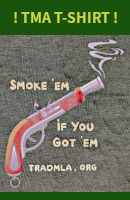Hi,
Unfortunately, your original question is one that has no set answer because there are so many variables. What you were really asking is "How much barrel wall thickness is required to withstand heavy loadings?" No gunsmith is going to answer that one unless he is building the rifle and has control over the quality of the parts used and how well they are fitted. He will also need to know what you mean by "heavy" in terms of powder charges and projectile weight.
When it comes to accuracy, whatever the distance, other factors come into play. Barrel rigidity and heating for instance. The thicker the barrel wall, the more rigid the barrel, and the slower it heats up/cools down (greater thermal stability). A rifle barrel actually vibrates like a tuning fork when the gun is fired. The heavier the barrel the less the vibration. That's why bench rest rifles have those huge barrels. The same goes for thermal stability. A thick barrel will maintain a more stable temperature from shot to shot. As a barrel heats and cools it actually changes its dimensions slightly. It can also warp, which will change the point of bullet impact. I believe these factors are why the .45 caliber became so popular in long range shooting. There's nothing magical about .45 as a caliber, it's the fact that it permits good barrel wall thickness at a weight a person can carry around and shoot comfortably.
I think you can answer your own question regarding biggest caliber in a 1" barrel though. If you haven't already done so, take a look at the offerings from various barrel makers. I think you will find that .58 is the biggest bore offered.
Storm




